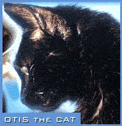pattrice jones —cofounder of VINE (Veganism is the Next Evolution) Sanctuary, 100-acre facility in Vermont, a self-described “LGBTQ-led farmed animal sanctuary” we wanted to spotlight as we celebrate Pride Month—outlines VINE’s history and evolution, including its initial incarnation as Eastern Shore Sanctuary, which primarily housed chickens, and was located in Maryland. jones recalls the impetus for relocating the Sanctuary, why they selected Vermont as the new location, and offered a current census: 700 animals, including 39 cows, hundreds of chickens, goats, sheep, alpacas, and “an exceptional pig.” She shares some of the early storylines of the pattrice jones narrative, including that when she was a young kid, and her father was serving in the Navy, the family lived on a base where their house was “a de facto dog shelter.” A couple of pivotal storylines, jones
jones recalls the impetus for relocating the Sanctuary, why they selected Vermont as the new location, and offered a current census: 700 animals, including 39 cows, hundreds of chickens, goats, sheep, alpacas, and “an exceptional pig.” She shares some of the early storylines of the pattrice jones narrative, including that when she was a young kid, and her father was serving in the Navy, the family lived on a base where their house was “a de facto dog shelter.” A couple of pivotal storylines, jones reports, arrived in her early teen years: She quit eating meat (though hastens to add it was some years later that she went vegan), and attended her first gay rights rally. She elaborates on the description of VINE as a “LGBTQ-led farmed animal sanctuary,” noting what that means, more specifically, and what that looks like. Jones also articulates the other ways VINE differs from most other farmed animal sanctuaries, including opting not to segregate the animals by species, and a work-first, gaze-later policy for visitors. She recounts some of the challenges the pandemic posed at VINE, and how she and her colleagues navigated those, citing as a direct virtue the Sanctuary’s successful launching of online educational programs, after trying to do so previously without gaining traction; now, people are conversant with Zoom! (http://vinesanctuary.org, https://www.facebook.com/VINEsanctuary/, https://www.instagram.com/vinesanctuary/)
reports, arrived in her early teen years: She quit eating meat (though hastens to add it was some years later that she went vegan), and attended her first gay rights rally. She elaborates on the description of VINE as a “LGBTQ-led farmed animal sanctuary,” noting what that means, more specifically, and what that looks like. Jones also articulates the other ways VINE differs from most other farmed animal sanctuaries, including opting not to segregate the animals by species, and a work-first, gaze-later policy for visitors. She recounts some of the challenges the pandemic posed at VINE, and how she and her colleagues navigated those, citing as a direct virtue the Sanctuary’s successful launching of online educational programs, after trying to do so previously without gaining traction; now, people are conversant with Zoom! (http://vinesanctuary.org, https://www.facebook.com/VINEsanctuary/, https://www.instagram.com/vinesanctuary/)

![]()
![]()
![]()
![]() ALSO: I also played back a brief interview I’d recorded with Nathalie Gill, of Sea Shepherd
ALSO: I also played back a brief interview I’d recorded with Nathalie Gill, of Sea Shepherd
![]() Conservation Society, speaking from Brazil, where she is campaign leader of a newly-announced Sea Shepherd initiative to protect the dolphins of the Amazon River. A native of Brazil, Gill explains the various challenges these dolphins face, cultivating a dramatic decline in their population, and how the hope is this initiative—partnering Sea Shepherd with scientists from the National Institute for Research—will yield findings that force the government to impose new regulations or laws that will afford the dolphins far better protections. (https://seashepherd.org, https://seashepherd.org.br, https://www.instagram.com/seashepherdsscs/, https://www.facebook.com/SeaShepherdConservationSociety)
Conservation Society, speaking from Brazil, where she is campaign leader of a newly-announced Sea Shepherd initiative to protect the dolphins of the Amazon River. A native of Brazil, Gill explains the various challenges these dolphins face, cultivating a dramatic decline in their population, and how the hope is this initiative—partnering Sea Shepherd with scientists from the National Institute for Research—will yield findings that force the government to impose new regulations or laws that will afford the dolphins far better protections. (https://seashepherd.org, https://seashepherd.org.br, https://www.instagram.com/seashepherdsscs/, https://www.facebook.com/SeaShepherdConservationSociety)
COMEDY CORNER: Drew Hastings’ “Farming 101” (portion) (https://www.drewhastings.com)
MUSIC: Rebekah Pulley’s “Talking Animals Theme,” instrumentals
NAME THAT ANIMAL TUNE: We didn’t play “Name That Animal Tune” today.
AUDIO ARCHIVE:
Part One
Listen Online Now:
Part Two



